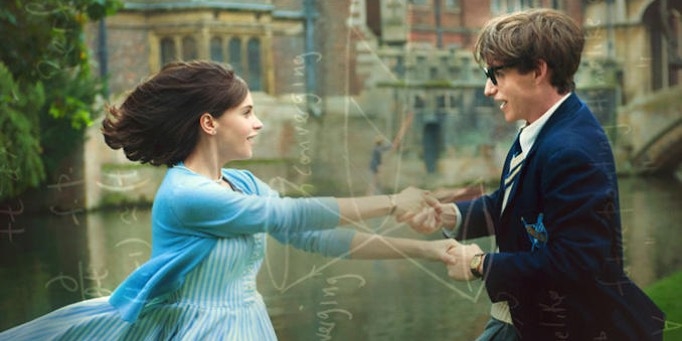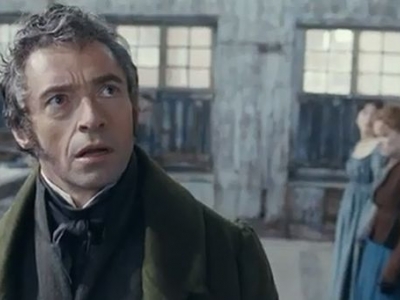
The Theory of Everything: Movie Review
Science, faith and the frailty of human life.
“What do cosmologists worship?” “One, single, unifying equation that explains everything in the universe.”
So says Stephen Hawking (Redmayne) to future wife Jane (Jones). But The Theory of Everything isn’t really about the science or the scientist – it’s about a marriage pushed to the limits by a debilitating disease. While Stephen pursues this equation with his ever-sharp mind, seeing his scientific fame soar beyond all expectations, his body and his marriage both deteriorate.
Stephen is a cosmologist (“a kind of religion for intelligent atheists”), but Jane is a Christian. There is some tension in this – Stephen has “a slight problem with the celestial dictatorship premise”, but Jane seems to hold on to some faith throughout the film. Jane even joins a church choir, where she meets Jonathon Jones (Charlie Cox), who gives the family much needed help. Like everything else, though, Jonathon ends up being a source of tension.
The film is told largely from the perspective of Jane Hawking. In fact, it’s based on the real Jane Hawking’s book. This means we see the inside story, watching from within the marriage the toll Stephen’s illness takes on their relationship, and getting a sense of the stress and tension Jane deals with.
All the actors put in excellent performances, but Eddie Redmayne’s performance as Stephen Hawking is particularly astounding. He brilliantly portrays the scientist as his nerve cells die, his muscles degenerate, and his body collapses. His speech slurs, his feet drag, his shoulders stoop. But his mind is as active as ever, and his wit remains razor sharp. It’s both breathtaking and heartbreaking to watch.
Despite the fantastic performances, I found it hard to emotionally connect with any of the characters, which is a shame in such a character-driven film. We don’t really get an insight into their minds, into what they’re thinking and feeling at any given moment. We don’t know what Stephen really thinks or feels about his illness. We don’t know what Jane thinks or feels about being married to an atheist. We don’t even know much about the Hawkings as a couple, what keeps them together, what they love about each other. I felt this made a good film into a decent film.
Part of the tension in the Hawkings’ marriage is the conflict between science and God. While Jane always seems to cling to her faith, however loosely, Stephen’s life’s work assumes God doesn’t exist. In fact, if Stephen can prove a particular theory he has, he would prove that God doesn’t exist!
The reality is that this conflict between science and God isn’t as pronounced as this. In fact, Romans 1:19-20 tells us that God reveals some of himself through nature, the very subject of scientific enquiry:
“For since the creation of the world God’s invisible qualities—his eternal power and divine nature—have been clearly seen, being understood from what has been made.”
Science, says the Bible, actually tells us about God, rather than showing him not to exist.
The Theory of Everything is a sometimes engaging film that lacks the depth it might have had, but it’s saved by an excellent cast and outstanding performances across the board.
For more articles from Growing Faith, subscribe to our monthly e-newsletter.
To hear about the latest books and resources from Youthworks Media, subscribe here.







